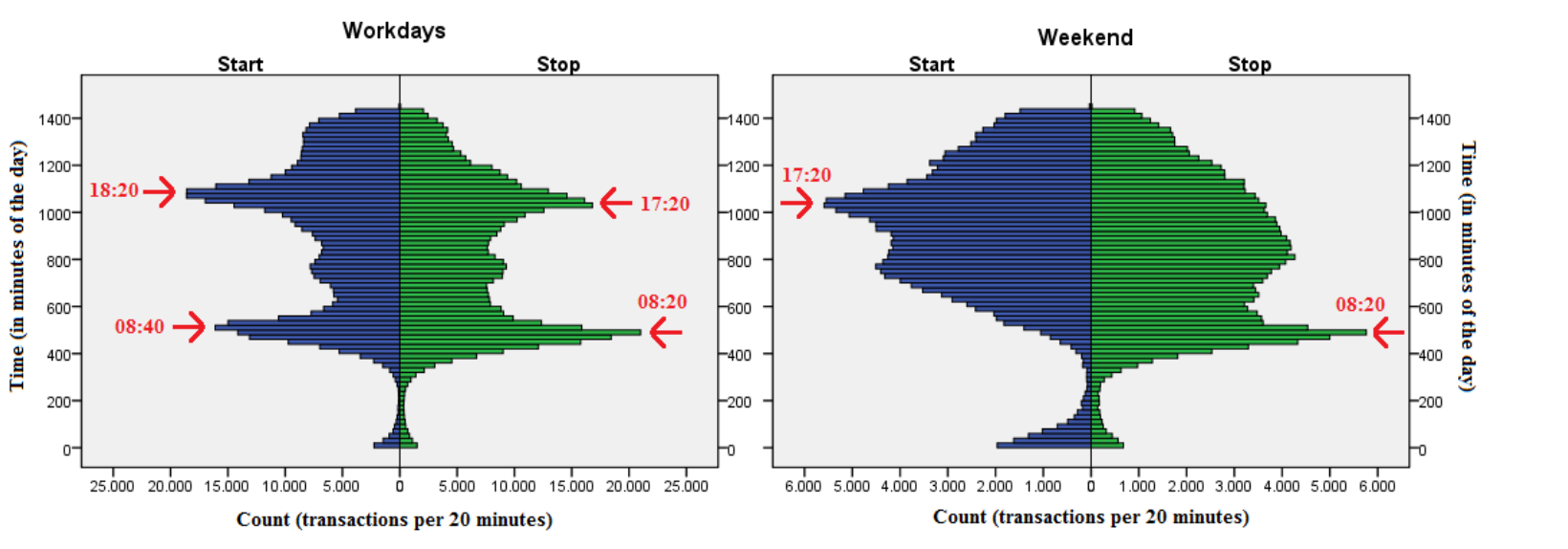I would like to count the amount of sessions started at each 15 minutes intervals for businessdays within a large dataset.
My data looks like:
df <-
Start_datetime End_datetime Duration Volume
2016-04-01 06:20:55 2016-04-01 14:41:22 08:20:27 8.360
2016-04-01 08:22:27 2016-04-01 08:22:40 00:00:13 0.000
2016-04-01 08:38:53 2016-04-01 09:31:58 00:53:05 12.570
2016-04-01 09:33:57 2016-04-01 12:37:43 03:03:46 7.320
2016-04-01 10:05:03 2016-04-01 16:41:16 06:36:13 9.520
2016-04-01 12:07:57 2016-04-02 22:22:32 34:14:35 7.230
2016-04-01 16:56:55 2016-04-02 10:40:17 17:43:22 5.300
2016-04-01 17:29:18 2016-04-01 19:50:29 02:21:11 7.020
2016-04-01 17:42:39 2016-04-01 19:45:38 02:02:59 2.430
2016-04-01 17:47:57 2016-04-01 20:26:35 02:38:38 8.090
2016-04-01 22:00:15 2016-04-04 08:22:21 58:22:06 4.710
2016-04-02 01:12:38 2016-04-02 09:49:00 08:36:22 3.150
2016-04-02 01:32:00 2016-04-02 12:49:47 11:17:47 5.760
2016-04-02 07:28:48 2016-04-04 06:58:56 47:30:08 0.000
2016-04-02 07:55:18 2016-04-05 07:55:15 71:59:57 0.240
I would like to count all the starting sessions per 15minutes starting, where:
For business days
Time PTU Count
00:00:00 - 00:15:00 1 10 #(where count is the amount of sessions started between 00:00:00 and 00:15:00)
00:15:00 - 00:30:00 2 6
00:30:00 - 00:45:00 3 5
00:45:00 - 01:00:00 3 3
And so on and the same data for the weekend.
I have tried the cut function:
df$PTU <- table (cut(df$Start_datetime, breaks="15 minutes"))
data.frame(PTU)
EDIT: When I run this i receive the following error:
Error in cut.default(df$Start_datetime, breaks = "15 minutes") :'x' must be numeric
And some functions with lubridate, but I can't seem to make it work. My final goal is to create a table like the following, but then with 15 minutes interval.


cutapproach is not working – Corolladputa bit of data? – Kovnodputcommand will turn your dataframe into a few lines of code which you can copy-paste into your questions. Try?dputto find out more – Hold